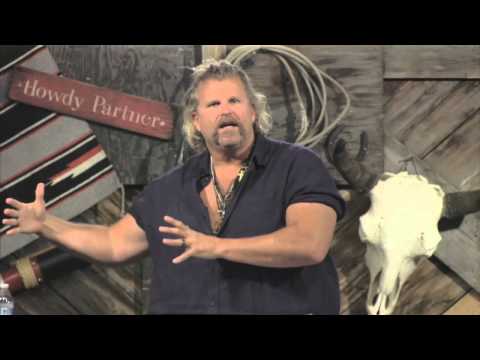
Inside the Temple, Part 4
Shawn McCraney critiques Mormonism, emphasizing truth and integrity in faith. He contrasts LDS temple practices with biblical teachings, advocating for direct divine guidance.

Shawn McCraney critiques Mormonism, emphasizing truth and integrity in faith. He contrasts LDS temple practices with biblical teachings, advocating for direct divine guidance.

Shawn McCraney critiques Mormonism's ties to Freemasonry, emphasizes organic ministry growth, and discusses Christian music's positive spiritual impact.

Shawn McCraney critiques Mormonism, emphasizing biblical study, spiritual truth, and grace over law. He advocates personal faith, critiques institutional control, and supports cultural boycotts.

Shawn McCraney contrasts Mormonism and Biblical Christianity, emphasizing salvation by faith, critiques LDS temple practices, and highlights issues of honesty and control in LDS rituals.

Shawn McCraney critiques Mormonism, contrasts it with Biblical Christianity, and emphasizes personal faith, questioning institutional beliefs, and focusing on Jesus' teachings.

Shawn McCraney critiques Mormonism's authenticity, highlighting its cultural benefits but lack of true Gospel. He questions LDS tenets, promotes Jesus' teachings, and offers Spanish resources.

Shawn critiques Mormonism, emphasizing truth-seeking over myth defense, contrasts LDS and biblical Christianity on salvation, and highlights doctrinal differences and youth ministry.

Shawn critiques Mormonism's self-centered doctrines, emphasizing faith in Jesus for salvation. He highlights the need for love over self-righteousness and addresses LDS disillusionment.

Shawn critiques Mormon culture's dominance in Utah, faces challenges with Alathea Ministries, emphasizes introducing LDS to Jesus, and promotes authentic Christian faith.

Shawn McCraney critiques LDS social media use, contrasts Mormonism with Christianity, emphasizes Jesus' centrality, and critiques church practices, seeking humility and forgiveness.

Shawn McCraney critiques Evangelicalism, Mormonism, and modern worship practices, advocating for scripture-based faith, traditional marriage norms, and genuine worship.

Shawn McCraney critiques the LDS Church's shift to digital outreach, contrasts LDS media acceptance with his own struggles, and argues for worship focused on God over personal expression, questioning the role of contemporary Christian music in church.

Shawn critiques using films like "Man of Steel" in churches, stresses Bible teaching, warns of Christian persecution, critiques LDS focus, and emphasizes faith for salvation.

Shawn McCraney focuses on biblical exegesis, outreach to LDS, critiques superficial church teachings, and discusses salvation's conditional nature, emphasizing reasoned faith.

Shawn McCraney advocates for biblical church models, emphasizing faith and grace for salvation, not human traditions. He critiques societal issue battles, stresses personal faith, and highlights the importance of community and genuine church involvement.

Shawn McCraney emphasizes a biblical church model, critiquing Pope Francis' view on atheists' redemption. He advocates faith-driven goodness, small congregations, and true discipleship.

Shawn McCraney critiques wealth pursuit in churches, emphasizes Bible teachings, warns against "three G's" (Girls, Glory, Gold), and advocates for faith over institutional growth.

Shawn McCraney critiques archeological claims of the Book of Mormon, emphasizes critical thinking, small congregations, biblical truth, humility, and spiritual rebirth over grandeur.

Shawn McCraney critiques prosperity gospel, emphasizes faith over feelings, and promotes freewill giving over tithing. He contrasts Biblical Christianity with Mormonism, focusing on spiritual over material wealth.

Shawn McCraney reveals LDS leaders' private doubts about church claims, influenced by Grant Palmer's book. Despite doubts, leaders stay due to church benefits and structure.

Shawn critiques prosperity theology, linking it to Mormonism, emphasizing biblical evaluation over systematic theology. He warns against deceptive faith healings and prosperity teachings, advocating for authentic Christian discourse and discernment.

Shawn McCraney discusses "Heart of the Matter" expansion, church transformation, pressures on young Mormon men, faith healing scrutiny, and the need for evidence in healing claims.

Shawn McCraney critiques organized religion, especially Mormonism, for evolving practices. He questions faith healing, emphasizing trust in God's will over miraculous claims.

Shawn McCraney distinguishes cultural practices from genuine faith, warns against equating traditions with salvation, and advocates for authentic worship and scientific engagement.

Shawn McCraney critiques modern churches for neglecting scripture, emphasizing biblical teaching over tradition. He challenges conformity in Mormonism and Evangelicalism, advocating for a personal, Spirit-led faith.

Shawn McCraney's "Heart of the Matter" transitions to virtual, critiques Mormon exclusivity, promotes non-legalistic Christianity, personal faith, and God's grace over deeds.

Shawn McCraney's show was canceled due to conflicts over his critiques of religious figures and shift to critiquing Evangelicalism. He emphasizes truth, transparency, and challenging church practices, advocating for genuine faith and grace over institutional interests.

Shawn McCraney critiques organized religion, especially Mormonism and Evangelical Christianity, advocating for a direct relationship with God and unfiltered truth. His ministry helps people leave Mormonism for authentic faith in Jesus.

Shawn McCraney critiques LDS mind control, urging focus on God's kingdom, linking Mormonism to biblical Christianity. Announces hiatus, returning January 2013.

Shawn McCraney teaches Christianity should avoid politics, critiques Mormonism's influence, emphasizes Jesus' divinity, questions the Trinity, and challenges the Book of Mormon.